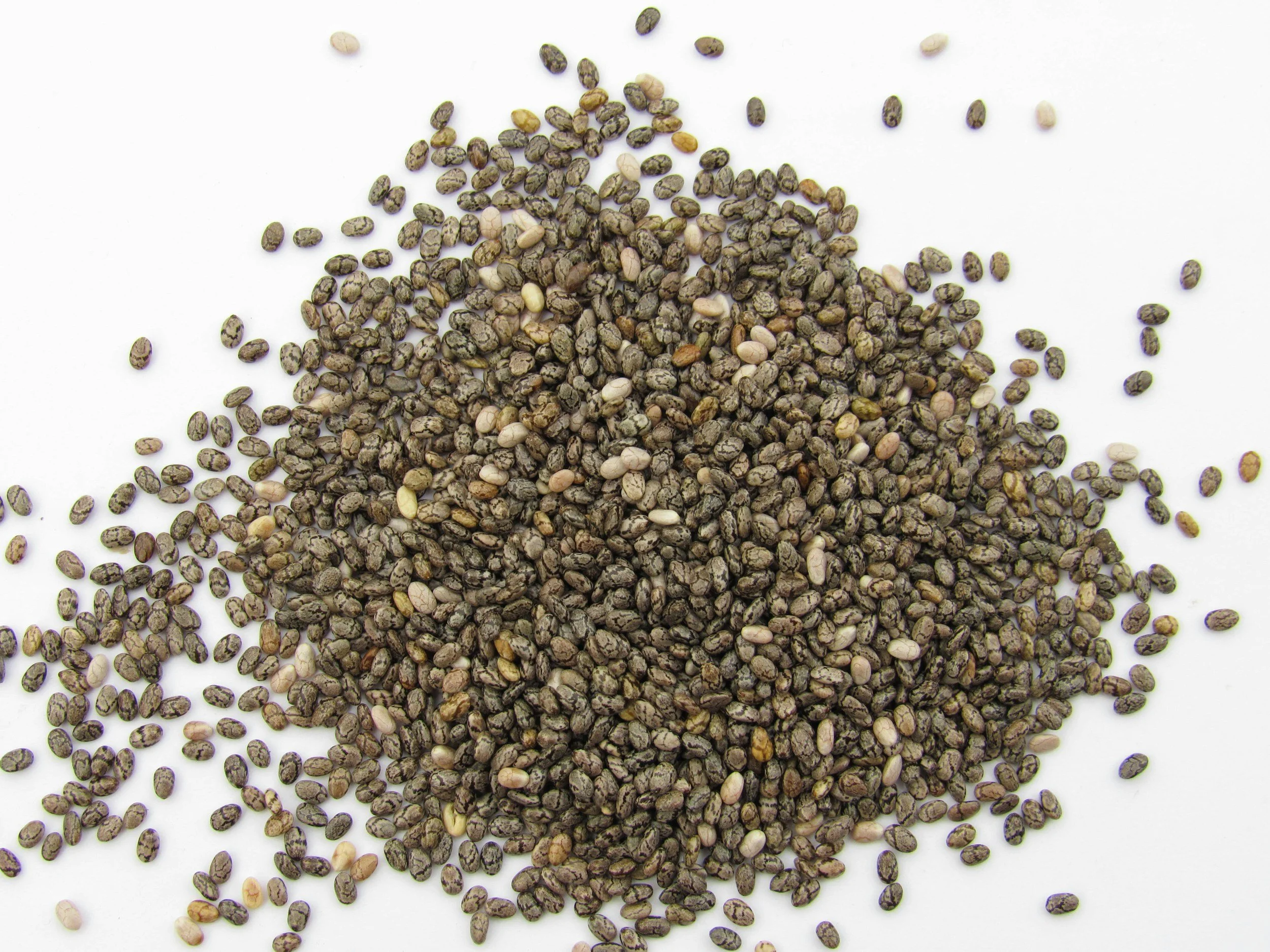Health Benefits of Chia Seeds: Why They Should Be in Your Diet
Chia seeds might be small in size, but they’re certainly not small in terms of nutritional value. In fact, chia seeds have graduated from their status as a niche health food to become one of the most popular superfoods around today – and for good reason. These tiny black or white seeds are filled with dense nutrition that can help boost your body’s performance and your overall health.
Whether you want to increase energy, improve digestion or support heart health, it’s easy to introduce these incredible little seeds into your diet. Read on to discover more about the numerous chia seed benefits and why you should consider making them a daily dietary staple.
What Are Chia Seeds?
Chia seeds come from the plant Salvia hispanica, which is native to Central America. The seeds were a staple food for the ancient Aztecs and Mayans, who valued them for their ability to provide long-lasting energy. In fact, “chia” is the ancient Mayan word for “strength.” Today, chia seeds are recognized for their impressive nutritional profile and their versatility in the kitchen.
Nutritional Powerhouse
Chia seeds are often called a “superfood” because they are incredibly rich in nutrients. Here’s a quick look at what you’ll find in just one ounce (about 2 tablespoons) of chia seeds:
Fiber: 11 grams
Protein: 4 grams
Omega-3 Fatty Acids: 5 grams
Calcium: 18% of the recommended daily intake (RDI)
Manganese: 30% of the RDI
Magnesium: 30% of the RDI
Phosphorus: 27% of the RDI
Chia seeds also contain a good amount of zinc, vitamin B3 (niacin), potassium, vitamin B1 (thiamine), and vitamin B2. Despite being so nutrient-dense, chia seeds are low in calories, making them an excellent choice for anyone looking to improve their diet without adding extra calories.
Health Benefits of Chia Seeds
There are a number of health benefits in chia seeds that can have a positive impact on many areas of your well-being. Let’s take a look at the main reasons why you should think about adding chia seeds to your diet.
1. High in Fiber for Better Digestion
One of the most recognized benefits of chia seeds is that they are packed with fiber. Fiber keeps your digestive system healthy. It helps keep everything moving along, preventing constipation and promoting overall gut health. Chia seeds contain mostly soluble fiber, which absorbs water and forms a gel in your stomach, slowing digestion down and keeping you feeling full for longer.
If you have digestive problems, chia seeds can help you ease them. But, pay attention to the water intake, because they absorb fluids.
2. Rich in Omega-3 Fatty Acids for Heart Health
Omega-3 fatty acids are a type of essential fats that the body can’t produce on its own. They’re important for keeping the heart healthy by reducing inflammation, reducing blood pressure and reducing the risk of heart disease. Chia seeds are one of the best sources of plant-based omega-3 fatty acids (alpha-linolenic acid or ALA).
Several studies have shown that diets containing high concentrations of omega 3 fatty acids locks out cardiovascular diseases. Though chia seeds don’t provide as much omega-3 fats as fish do, they’re still an excellent addition to any heart-friendly diet especially for vegans and vegetarians.
3. Supports Weight Loss Efforts
If you’re trying to lose weight, chia seeds can definitely be a good addition to your diet. When it comes down to it, chia seeds (like most high-fiber foods) help you stay full longer and therefore potentially eat less overall. The soluble fiber in chia seeds absorbs water and expands in the stomach, keeping you satisfied and suppressing those snack cravings.
But don’t forget that while they may be tiny, chia seeds are mighty when it comes to their nutrient profile. Remember they’re a low-calorie density food that’s also high in nutrients—especially filling fiber (one ounce contains 11 grams!).
Add them into meals like smoothies or yogurt or sprinkle them on top of salads if you’re looking for an added boost at mealtime that might help control hunger—it definitely beats going off the rails with a 3 p.m. vending machine run!
4. Packed with Antioxidants
Chia seeds are high in antioxidants that help fight the production of free radicals, which can damage molecules in cells and contribute to ageing and diseases like cancer.
The antioxidants in chia seeds also help keep the seeds fresh, preventing them from going rancid. This makes chia seeds a long-lasting and nutritious pantry staple.
5. Excellent Source of Plant-Based Protein
For those adhering to a vegetarian or vegan diet, it can be challenging to find sources of protein that aren’t derived from animals. Chia seeds actually contain all nine essential amino acids that we need to get through our food, so they’re a complete protein source–and an easy one to sprinkle into meals and snacks. One ounce of chia seeds contains 4 grams of protein, so there’s no reason not to add some chia into your morning smoothie for good measure.
Conclusion: A Small Seed with Big Benefits
Chia seeds may be small, but their health benefits are impressive. From supporting digestion and heart health to aiding in weight loss and providing essential nutrients, chia seeds are a simple and effective way to boost your overall health. Whether you’re looking to improve your diet, manage your weight, or support specific health goals, chia seeds are a versatile and nutrient-rich addition that can make a big difference.
Incorporating chia seeds into your daily meals is easy, and the benefits are well worth it. So why not give them a try? Your body will thank you for it.






